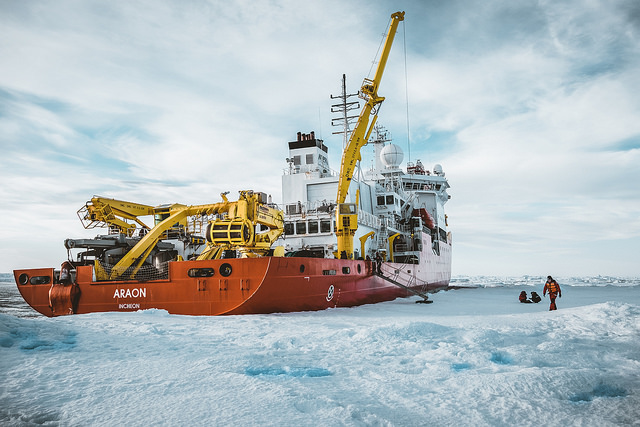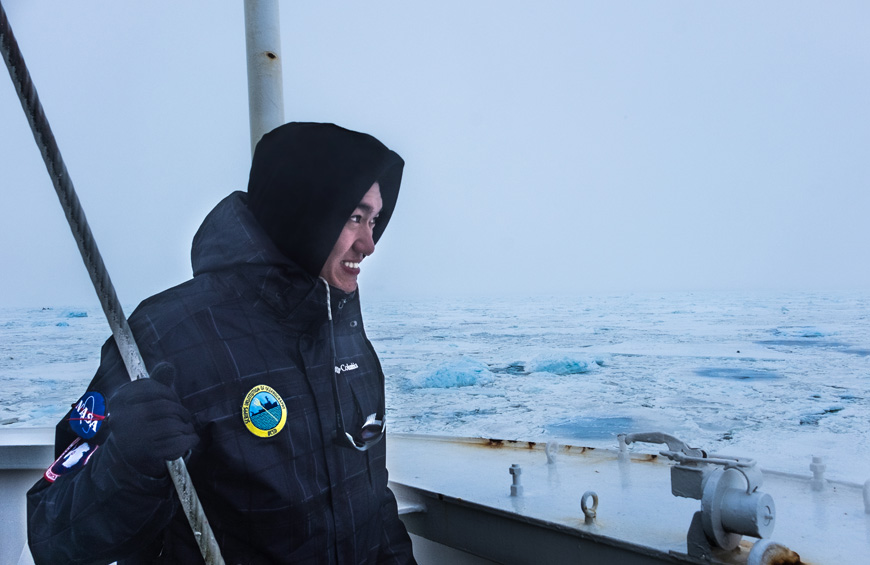
What’s the most exciting thing about your work?
JP: I remember seeing a polar explorer for the first time in a National Geographic documentary film. We were little kids in a class, and several of us told the teacher that we wanted to be an “Antarctic scientist.” It’s exciting to look back at that moment because this is what I do for work now. It’s an absolute honor to be among individuals who dedicate their careers to studying the polar region and exploration in extreme environments.
Are there any role models or mentors who have helped you along the way?
JP: My advisor and committee members at Scripps have been instrumental to my education and training as a scientist. I was also very inspired by educators and advisors I had along the way; these include my high school science teachers, my undergraduate advisors, and my supervisors at JPL. I also cherish the teaching and guidance in Dr. E.O. Wilson’s book Letters to a Young Scientist.
What are some of the challenges you face as a student?
JP: Like many graduate students, the occasional, overwhelming sense of uncertainty is probably the most pronounced challenge that I face as a student. This uncertainty comes from both contemplating over ‘what if the results’ p-value is >0.05’ (short-term) and contemplating over ‘what should I do in the future’ (long-term). It’s always challenging to find that inner balance between using this existential angst to motivate myself and being completely consumed by it.
What are your plans?
JP: Great ideas should not sit in a dissertation and die in a library. I hope to leverage the opportunities here at Scripps to promote public-private partnerships and turn great technologies from theory to reality. I also hope to continue my scientific work and advance our understanding of the natural environment. This endeavor is done through establishing a startup company here in San Diego. Ocean Motion Technologies aims to convert kinetic ocean wave energy to compressed air for power generation and energy storage. I hope this technology will be an innovative means of providing power to oceanographic and maritime sensors at sea.
You can find the Vernet Lab on Facebook @fjordphyto. You can find Jack Pan on Twitter @byjpan and Instagram @EcoRoyalty.
- Shawndiz Hazegh






修改评论